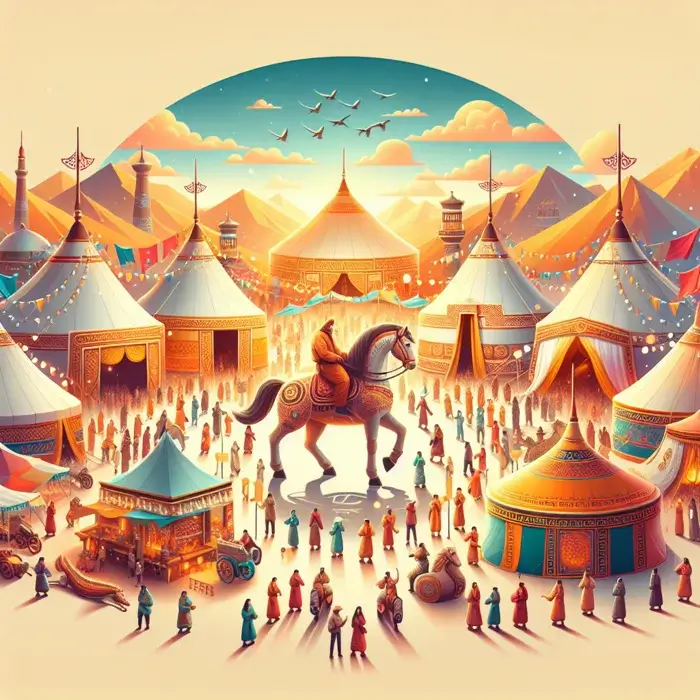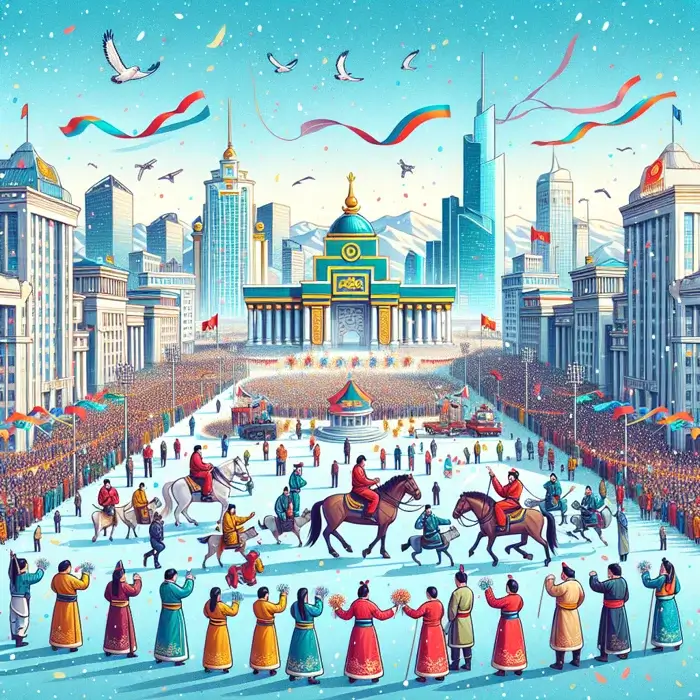Capital City Day in Mongolia
Use our holiday API to get the exact date of Capital City Day in Mongolia in every year.
Introduction

Mongolia, a country very much famous for its great open lands and beautiful culture, has a number of holidays that are very different from others and that can be found in the country and are very much characteristic of the culture. One of the holidays among them is the Capital City Day which is a very important event to celebrate the energetic capital of Mongolia, Ulaanbaatar. This event will give both the locals and the tourists a very good chance to enjoy the city’s historical background and importance in the present time. In the following post, we will discover the meaning and importance of Capital City Day, go through its history, and find out how it is being celebrated.
The Meaning and Significance of Capital City Day
Capital City Day is all about honoring Ulaanbaatar, the capital city of Mongolia, which is the center of politics, culture, and economic activities in the country. The day is not only a recognition of the city’s status but also an opportunity to contemplate its historical development and the role played by the city in the country’s growth. It is a good time for the citizens and the government to look back and appreciate the capital's contribution to the formation of the character of the nation and to talk about the future of the capital city.
When and How It's Celebrated
Capital City Day is generally celebrated on the 29th of October annually. This day is when the people of Ulaanbaatar in various ways and activities come together to celebrate and reflect. The holiday is mainly on the city, but the importance of the occasion is recognized by people all over the country.
Activities and Celebrations

The events marking Capital City Day are composed of a mixture of official functions, cultural happenings, and public interactions. Here are some of the activities that are usually done:
- Parades and Ceremonies: The city public and cultural groups are officially paraded before the local government, who then deliver speeches and perform ceremonies to proclaim the city's contributions.
- Cultural Performances: Traditional Mongolian music and dance are performed at public squares and cultural centers, reflecting the area’s diverse and rich heritage.
- Exhibitions and Workshops: Special exhibitions and workshops on Ulaanbaatar's historical and urban development aspects are frequently conducted in museums and galleries.
- Local Markets and Festivals: The street markets and festivals provide the local delicacies, handicrafts, and entertainment, which makes it possible for the residents and tourists to absorb the local way of life.
Public Holiday Status

Celebrating Capital City Day as a public holiday allows the closure of many government offices, schools, and businesses to their minimum hours of operation in case of the latter. Nevertheless, unlike some of the most significant national holidays, banks and other essential services tend to be open, thereby facilitating the normal flow of commerce. Generally, the museums and cultural venues are also open, and in fact, they might even increase their hours to capture the increased interest in activities.
History of Capital City Day
The Capital City Day really was a day set up to show in a formal way the importance of Ulaanbaatar in Mongolia's past and present with its major role. The city was initially established in 1639 as a mobile monastic community called Urga, and so its religious and cultural significance got emphasized. Eventually, Ulaanbaatar was declared the permanent capital in 1778 and the name was changed in the 20th century.
The issuing of a special day to celebrate the capital was included in a larger scheme, which is called Mongolia's attempt to turn attention to the regions' contributions to the national narrative and create a feeling of togetherness and pride among its people. This holiday, which lasts for a month, is a way of people looking to a sustainable and prosperous city of the future while still paying homage to its rich past.
Conclusion
Capital City Day in Mongolia is a lively and colorful celebration of Ulaanbaatar, a city that is the centre of Mongolian culture, history, and development. The city’s residents and visitors alike are invited to join parades, cultural performances, and community events, thereby gaining a deeper understanding and appreciation of Ulaanbaatar's central role. As the city develops, Capital City Day is still a significant indicator of its historic legacy and bright future.